Top 5 KPIs for nurses in General Practice
- Cubiko, Data, KPI's
- Chris Smeed
- July 23, 2021
Nurses play a critical role within General Practice by delivering quality care to patients. Your nurses are important members of your team as they help contribute toward your practice’s goals. Just like any role within the practice we should be measuring our teams performance and see how we are tracking towards our goals and Key Performance Indicators (KPIs).
A KPI is a measurable value used to track how you are performing against your practice’s goals and priorities. The KPIs that you may be measured against will vary from practice to practice.
Below is a list of the top 5 KPIs we find our customers focus on:
- Identifying possible service opportunities for Medicare Items
- Improving Quality Care and Safety
- Recalls and reminders
- Diary Utilisation
- Vaccine Clinic Support and stock control
Continue reading for an in-depth look into how you can measure these KPIs and how Cubiko can help you to continue to deliver outstanding patient care.
1. Identifying possible service opportunities for Medicare Items
Service Opportunities for medicare items is about being proactive in the care that you’re providing to your patients.
Many clinics are not aware that they are potentially underutilising the item numbers available to them through Medicare and DVA. Without the proper tools and technologies, identifying possible service opportunities for Medicare item optimisation can be a time-consuming task. A nurse’s time is better spent caring for patients.
To do this, you can spend time looking at the billing history of every patient attending an appointment at your practice that day and run searches in your practice management system (PMS). Find a list of patients who may be eligible for possible service opportunities and act on it throughout the day.
Cubiko provides you with these lists to help you identify possible service opportunities your patients may be eligible for. Use this as an opportunity to talk to your patients about their overall health by making them aware of their eligibility and what this means. Instead of just focusing on the acute problem at hand.
You can also download and print a list of patients who may be eligible for a health assessment or chronic disease management service, but don’t have an upcoming appointment booked in. Give this list to your reception team to contact, to invite these patients to book in for an appointment
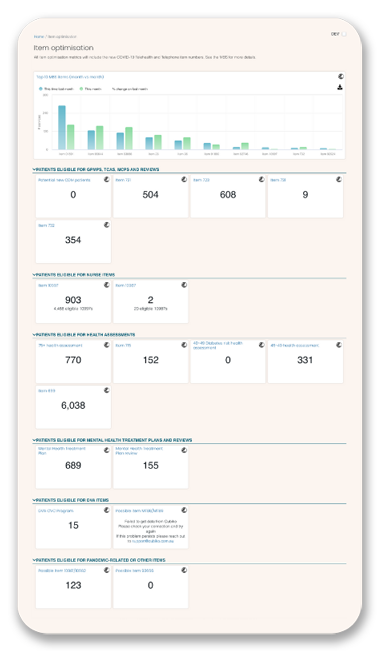
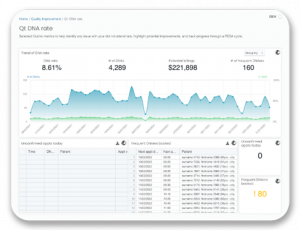
2. Improving Quality Care and Safety
The continued improvement in quality care and safety within General Practice is vital. Not only for your practice’s accreditation but most importantly for the safety and well-being of your patients.
According to the RACGP Standards for General Practice, safety and quality improvement (QI) activities should be based on evidence gathers from your practice’s data. With the overwhelming amount of data your practice collects in bulky spreadsheets, it can be challenging and time-consuming to determine which areas of improvement you should be focusing on while developing solutions. To do this, implement and test interventions through rapid Plan, Study, Do, Act (PDSA) cycles.
Below is a list of some general QI activities you, as a practice nurse, could focus on improving:
- Being proactive in the care provided to patients by identifying possible service opportunities for Medicare Item Utilisation
- Improving the number out outstanding/overdue recalls and reminders
- Increasing the use of certain item numbers in your practice, such as the item 699 Healthy Heart Check. Want to find out more about Item 699?, the Heart Foundation has some excellent resources.
Cubiko’s Quality Improvement cabinet has been specifically designed to help you with your QI activities.
You can use this tool to focus on the metrics you and your practice are working towards improving. While simultaneously using this dashboard to develop and document your possible solutions and their outcomes. This activity helps you work towards bettering your patient care and outcomes while assisting your practice meet their accreditation and PIP QI requirements.
3. Recalls and Reminders
To ensure the continued and preventative care of patients. Implementing a recall and reminder system for the follow up of tests, results and appointments is vital.
The handling of these recalls and reminders are generally the responsibility of the reception and nursing teams. Without the proper tools and technologies recall and reminder procedures can be quite a manual and timely task. Time that can be spent treating patients.
Cubiko provides insight into the number of overdue reminders and number of patients that have urgent and non-urgent recalls who have not been marked as contacted. Cubiko generates a list of all recall patients with their details for the nursing and reception team to contact and follow up to book patients in for an appointment.
We recommend getting your reception staff to handle all non-urgent recalls and reminders. Allowing the nursing team to focus on the urgent recalls and reminders.
During slower periods, when you have more openings than usual in your appointment book, utilise these lists to book patients in for appointments.
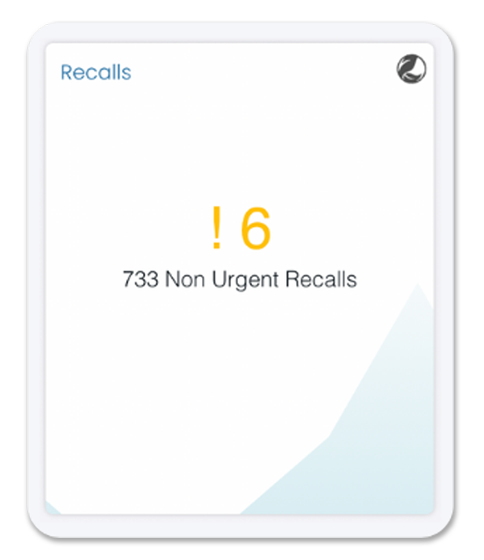
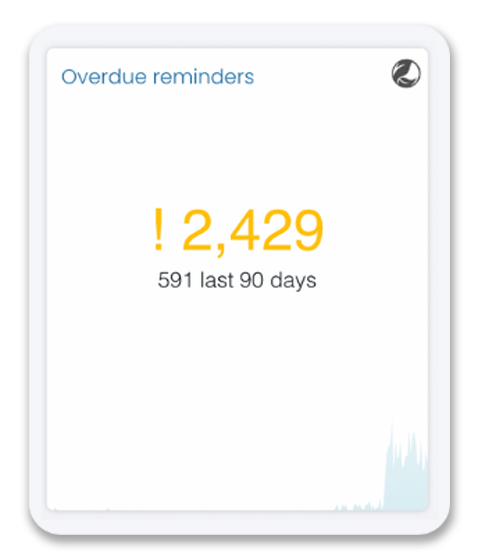
Want to understand more about how Cubiko helps your measure KPIs? Book in for an online demonstration.
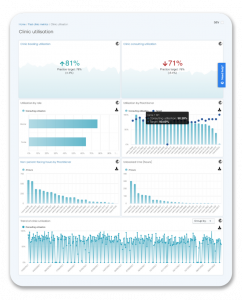
4. Diary Utilisation
Ensuring that your appointment book is full and that you’re seeing as many patients as possible is vital. Practice Managers are relying on their nursing team to take responsibility for their appointment book and time. They want to see that you are proactive with the care that you provide to your patients and that you’re generating income for the practice.
One way to measure how full your appointment book is through diary utilisation. Diary utilisation is the percentage of time you spend with patients. To measure your diary utilisation, we suggest looking at your diaries in your practice management system. Add up the total hours you have available to see patients (e.g., session hours), then add up the total hours spend you spent in patient appointments. Next, calculate how many non-patient appointments you had (e.g., admin time & staff meetings). Of your total available time (session hours), how many hours were booked in with appointments (patient & non-patient)? Finally, how many hours were spent booked in just with patients? Measuring your diary utilisation will give you actionable insights into areas that you can improve upon.
Don’t spend time manually calculating your diary utilisation. This is time better spent tending to patients or performing other routine tasks. Cubiko generates this data for you by integrating with your PMS and doing the calculations for you. The product visually identifies how your diary is being utilised. Filter your data to see graphs and figures detailing your booking and consulting utilisation. Higher numbers of consulting utilisation indicate that you have a higher number of patient bookings. Cubiko’s clinic utilisation metric provides you with a trend graph to show you how your booking utilisation and consulting utilisation have changed over time.
5. Vaccine Clinic Support & Stock Control
Nurses play a key role in the administration, organisation, and delivery of vaccines in general practice. Because of this, there are areas that you need to focus on to ensure that you’re running these clinics smoothly and effectively.
It is your responsibility to ensure that patients who are eligible or due to receive vaccines are being booked in for appointments with your Practitioners and vaccine clinics. Determining who these patients are can be quite manual and time-consuming.
Your time is better spent with patients, you don’t have the time to manually filter your patient lists to determine who is eligible for the Government funded flu vaccine. Nor do you have the time to look through your billing history to determine how many private flu vaccines you should order – based on the amount you administered in the previous year.
Cubiko helps you cut down on this time by extracting the data from your PMS to generate this information. Our vaccination support cabinets provide valuable insight into which patients are possibly due for their flu vaccine or Covid-19 vaccine. Cubiko can also show who may be eligible for a Government-funded flu vaccine, and provide a list of which patients have upcoming appointments booked in.
The data provided in this cabinet can also help you with stock management. Looking at the data you can quickly determine how many private flu vaccines you should be ordering for your practice, based on the number of private flu vaccines administered from the previous year.
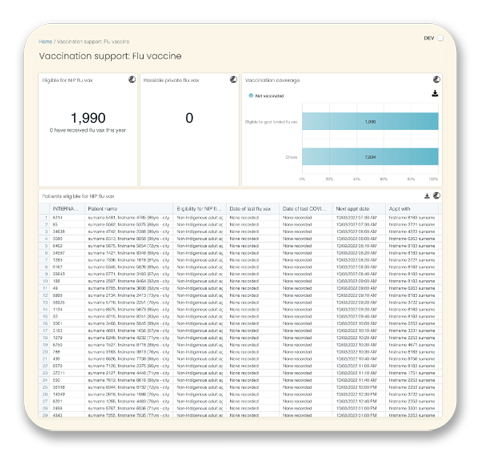
Next Steps
Interested in learning more about what KPIs you should be focusing on and how Cubiko can help? Book in for a demo today to find out more.
Trusted, reliable, loved by practices





